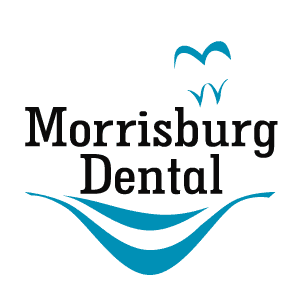Mon., Thurs. 8:00 am - 5 pm
Tues., Wed. 8:00 am - 8 pm
Fri. 8:00 am - 2:00 pm
Sat. 9:00 am - 3:00 pm
Sun. Closed
Tues., Wed. 8:00 am - 8 pm
Fri. 8:00 am - 2:00 pm
Sat. 9:00 am - 3:00 pm
Sun. Closed

Are you recommended a tooth extraction as an adult? The extraction could be necessitated due to various reasons. It could be a wisdom tooth extraction or because excessive tooth decay, infections, and crowding all require an extraction.
If you are getting braces, you may need to have a couple of teeth extracted to make space for your other teeth to move into place. People undergoing chemotherapy or expecting an organ transplant may need compromised teeth extracted to keep their mouth healthy.
The dentist in Morrisburg, ON, performs tooth extractions in a relatively quick outpatient procedure either with local, intravenous, or general anesthesia. Removing visible teeth requires a simple extraction, but a broken tooth extraction procedure is involved and requires surgical removal.
Tooth extraction in Morrisburg, ON, is scheduled after the dentist has examined your tooth and taken an x-ray. You must inform your dentist about any medications you take, including vitamins, supplements, and over-the-counter drugs.
Your dentist must be provided information about any treatment for another medical condition with an intravenous drug called a bisphosphonate. If you are scheduled for any such treatment, the extraction must be performed before the drug treatment failing which your jaw could be at risk for osteonecrosis. Your dentist must be informed about whether you are affected by any conditions like diabetes, hypertension, thyroid disease, liver disease, and others to stabilize the conditions before the procedure.
The dentist may prescribe antibiotics in the days before the procedure. The antibiotics are advised if your surgery is expected to be lengthy, you have an infection or a weakened immune system, or a specific medical condition.
It would be helpful if you inquired with the dentist about the anesthesia used during the procedure. If you are receiving intravenous anesthesia, it would be beneficial to wear short-sleeved or loose-fitting clothing and stop eating or drinking for at least 6 to 8 hours before your appointment. You must also avoid smoking before the procedure.
Tooth extractions are either simple or surgical, depending on whether your tooth is visible or impacted.
If you are scheduled for a simple extraction, local anesthesia is administered to numb the area around the tooth to ensure you only feel pressure and no pain. Dentists use instruments called elevators to loosen the tooth before extracting it with forceps.
If you are undergoing a broken tooth extraction where part of the tooth is below the gum line, you will possibly receive local and intravenous anesthesia to leave you calm and relaxed. Depending on any medical conditions, general anesthesia may also be administered. General anesthesia will make your unconscious throughout the procedure.
Small incisions are made in your gums by your dentist or oral surgeon to remove any bone around your tooth or cut the tooth in pieces before it can be extracted.
If you have a dental infection that necessitates removing a tooth, the dentist will determine whether or not infected tooth extraction should be performed immediately or left in place for some time. However, the extraction is inevitable because leaving the tooth in your mouth will provide the bacteria a pathway to prolong the infection. Therefore having the infected tooth removed at the earliest is the best option for you.
Some risks of undergoing tooth extractions do exist. However, if our dentist near you, recommends the procedure, the benefits of the same will outweigh any risks.
A blood clot forms naturally in the socket from where the tooth was extracted. However, if the clot does not begin or dislodges, it exposes the bone inside the socket. The condition is known as a dry socket, and when it occurs, the dentist will protect the area by putting a sedative dressing over it for a few days until new clot forms.
Other complications you may encounter include:
If you experience any symptoms mentioned above, you must contact your dentist promptly.
You will require a few days to recover entirely after tooth extraction. You can help your recovery to proceed smoothly by using the following tips.
You can apply an ice pack to your cheek after the procedure to reduce swelling and use it for 10 minutes at a time.
Take the medications prescribed by the dentist, including over-the-counter painkillers.
Rest and relax for at least 24 hours without jumping into your routine the following day.
Brush and floss your teeth like you always do by avoiding the extraction site.
Start having soft foods the day after the extraction.
If you experience persistent pain that isn’t going away after several days or observe signs of infection, make an appointment to see your dentist at the earliest.

 Why Is Teeth Whitening Essential for Many?
Why Is Teeth Whitening Essential for Many?